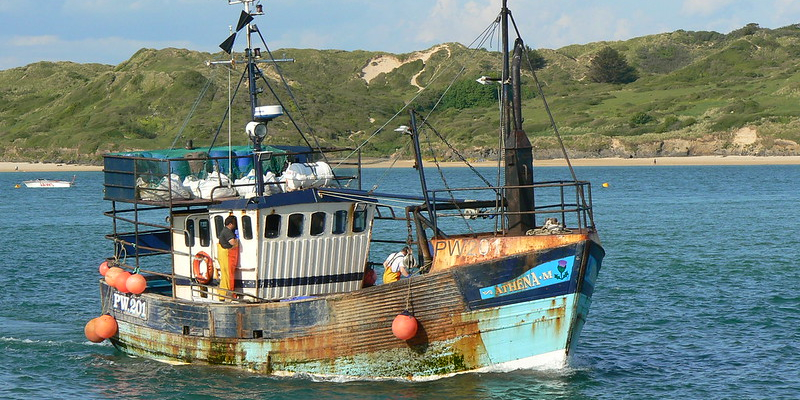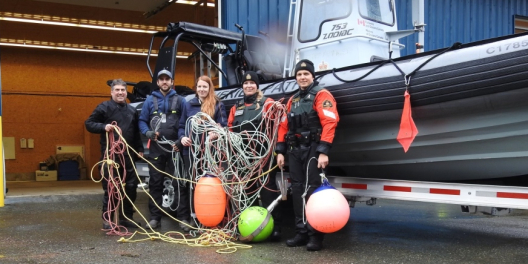The tables have turned on a boat in the Alberni Inlet. It used to go fishing, and now it needs to be fished out of the water itself.
It was a tough morning for the crew as their boat sank in the early hours of June 11th.
Westerly News spoke with a Canadian Coast Guard spokesperson about the event. The spokesperson said the vessel was fishing in the Inlet around 3:15 a.m. “when it got caught on rocks as the tide was receding. The vessel started to lean and sink.”
Luckily no one was hurt, and the crew is now safe.
But the boat was carrying about 500 litres of diesel that spilled near Hocking Point where the ship went down.
The spill had reportedly drifted quite far by the time the Coast Guard arrived on the scene.
“CCG’s Bamfield lifeboat station crew was the first on scene this morning and they observed a small non-recoverable light sheen about four cables south of the vessel, but no pollution was observed around the vessel itself,” the spokesperson said.
“The lifeboat crew have applied containment boom around the vessel as a precautionary measure.”
While diesel is very toxic to fish and other sea creatures, this is a small spill. There’s enough water to dilute the oil. But birds could be another story.
“Small spills in open water are so rapidly diluted that fish kills have never been reported,” says the US’s National Oceanic and Atmospheric Administration (NOAA).
But NOAA says birds can eat small amounts of diesel if they get it on their feathers, or get hypothermia if the oil mats their feathers together. Either situation can seriously harm them.
Thankfully, NOAA also says small diesel spills don’t stay on the surface long. “Experience with small diesel spills is that few birds are directly affected because of the short time the oil is on the water surface.”
Diesel is much lighter than water, and small spills such as this one spread quickly.
“When spilled in open water and unconfined, most diesel will evaporate or naturally disperse within a few days or less. Under these conditions, there is seldom any surface oil for responders to recover,” says NOAA.
Diesel also decomposes after 1 or 2 months.
It’s likely this spill won’t cause any long-term issues.
The boat’s owner hired a contractor to remove the boat.









